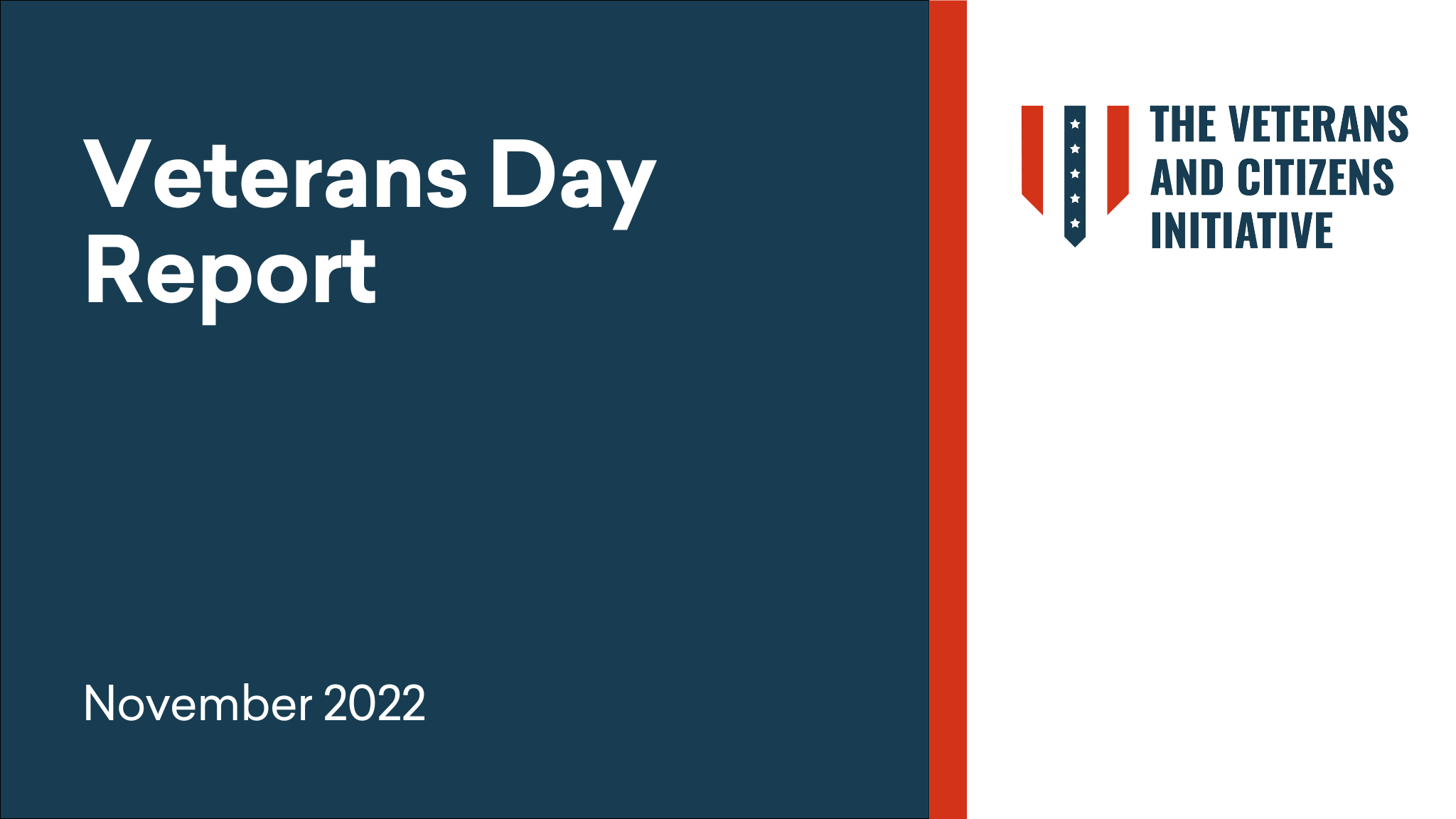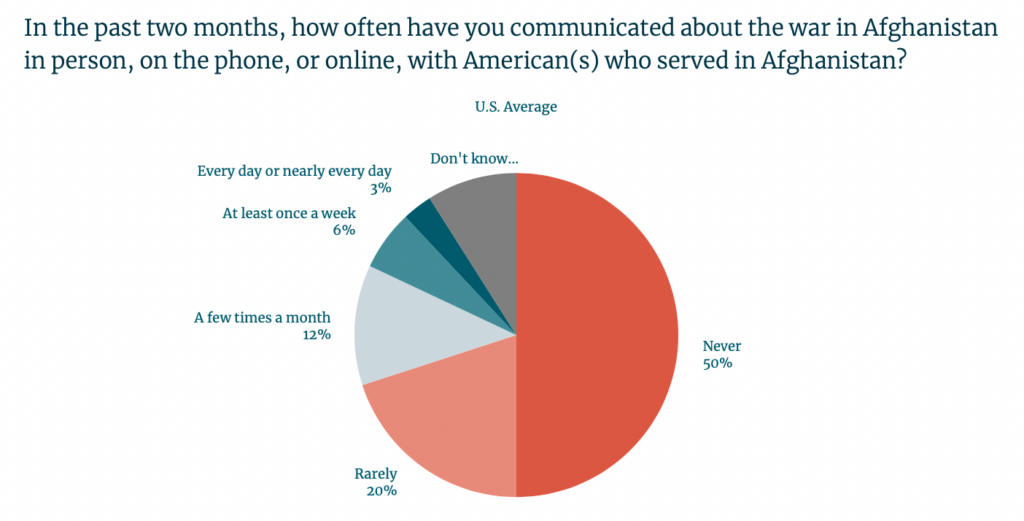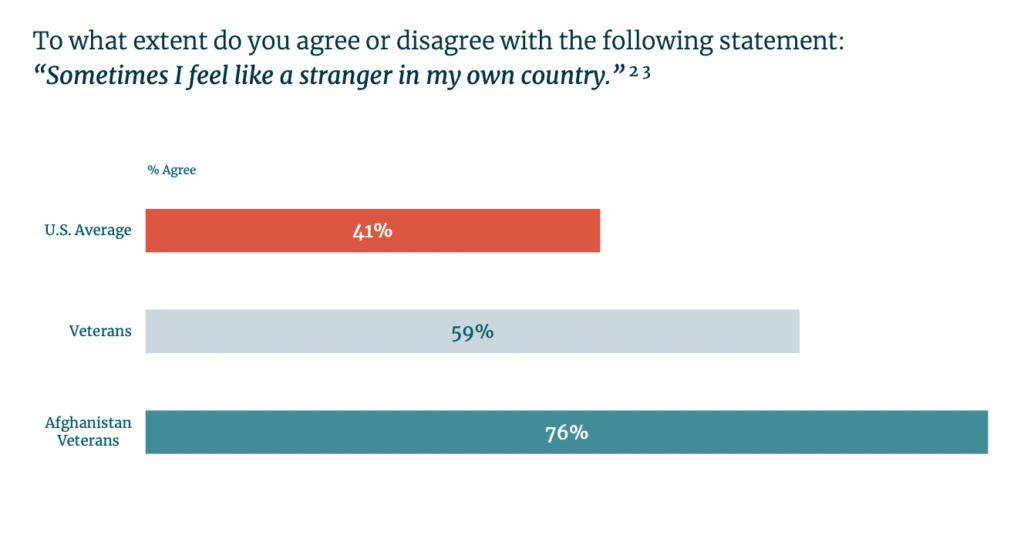
09 November 2022
November 10, 2021
Veterans and Citizens Initiative
In October 2021, just weeks after America withdrew from Afghanistan, we surveyed over 2,500 Americans, including 537 veterans, about the end of the war in Afghanistan. After Kabul: Veterans, America, and the End of the War in Afghanistan lays out the findings from this large-scale national survey. It shows a wide gulf between veterans and the broader society, with veterans — especially those who served in Afghanistan — processing a range of intense emotions while also feeling a sense of alienation from their fellow Americans. At the same time, the data show clear opportunities to help bridge this gulf, with an emphasis on working together to resettle Afghan allies and on creating opportunities for veterans and non-veterans to get to know each other and share stories.
Polling Firm: YouGov
Sample Size: n=2,000 US Adults (nationally representative)
Fieldwork Dates: September 29-October 13, 2021
Margin of Error: +/- 2.6 for US avg.
Polling Firm: YouGov
Sample Size: n=537 American Veterans Aged 18-55
Fieldwork Dates: September 30-October 13, 2021
Margin of Error: +/- 7.2 for American veterans aged 18-55 avg.
of Veterans said the war in Afghanistan “was a complete failure.”
of Veterans feel “America did not leave Afghanistan with honor.”
Veterans sometimes feel like a stranger in their own country, whereas less than half of Americans in general sometimes feel like a stranger in their own country (41%).
On August 30, 2021, the last American soldier left Afghanistan. Over the preceding month, Americans had watched the military and front-line civilians evacuate tens of thousands of personnel, American and Afghan, as the Taliban took control of Afghanistan. In an effort to capture key elements of this story, More in Common collaborated with a range of veteran and military family partners to design a national survey to gauge emotional reactions to the end of the war in Afghanistan.

After Kabul: Veterans, America, and the End of the War in Afghanistan lays out the findings from this large- scale national survey. It shows a wide gulf between veterans and the broader society, with veterans — especially those who served in Afghanistan — processing a range of intense emotions while also feeling a sense of alienation from their fellow Americans. At the same time, the data shows clear opportunities to help bridge this gulf, with an emphasis on working together to resettle Afghan allies and on creating opportunities for veterans and non-veterans to get to know each other and share stories.

Explore the depth of our research at your fingertips. Get the complete insights by downloading the full report today.
What unites and divides Americans today? This newsletter takes a closer look at issues pressing on America’s social and political fabric and provides recommendations for how to strengthen ties to keep us bound together.